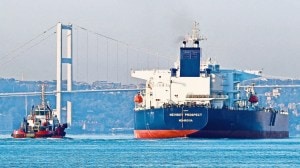Their fat, heavy American flights
Weight gain is a well-known problem for people who want to live long and healthy lives, but it also affects the health of the airline indus...

Weight gain is a well-known problem for people who want to live long and healthy lives, but it also affects the health of the airline industry.
In a recent issue of the American Journal of Preventive Medicine, the Atlanta-based Centers for Disease Control and Prevention said that bigger luggage is not the only thing weighing down airliners and causing them to burn more costly fuel.
In fact, the CDC said, the average weight of Americans increased by 10 pounds during the 1990s — requiring an extra 350 million gallons of jet fuel to fly them around during 2000, and it cost airlines an extra $275 million to transport what the CDC called ‘‘this additional adiposity’’.
Dr Andrew Dannenberg, one of three authors of the CDC report, said in an interview on Thursday that the agency was trying to focus public attention on the problems of weight gain. Airlines having to spend more on fuel, he said, ‘‘was looked on as an unexpected consequence’’.
Jack Evans, spokesman for the Air Transport Association of America, said weight is a real issue. ‘‘Every bit of added weight increases the amount of fuel you’re going to be burning,’’ he said. For that reason, he said, airlines in recent years have bumped metal forks and spoons, and have ditched bulky magazines.
Others have gone further. Southwest Airlines of Dallas requires large people to buy a second seat, citing safety and comfort of the other passengers.
—LAT-WP



- 01
- 02
- 03
- 04
- 05




























